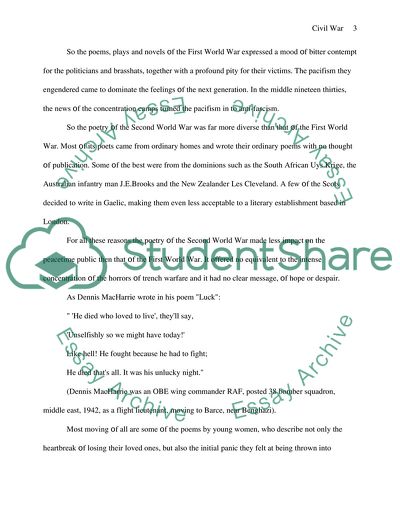Cite this document
(The Poetry f the First World War Essay Example | Topics and Well Written Essays - 4250 words, n.d.)
The Poetry f the First World War Essay Example | Topics and Well Written Essays - 4250 words. Retrieved from https://studentshare.org/literature/1712655-history
The Poetry f the First World War Essay Example | Topics and Well Written Essays - 4250 words. Retrieved from https://studentshare.org/literature/1712655-history
(The Poetry F the First World War Essay Example | Topics and Well Written Essays - 4250 Words)
The Poetry F the First World War Essay Example | Topics and Well Written Essays - 4250 Words. https://studentshare.org/literature/1712655-history.
The Poetry F the First World War Essay Example | Topics and Well Written Essays - 4250 Words. https://studentshare.org/literature/1712655-history.
“The Poetry F the First World War Essay Example | Topics and Well Written Essays - 4250 Words”, n.d. https://studentshare.org/literature/1712655-history.


